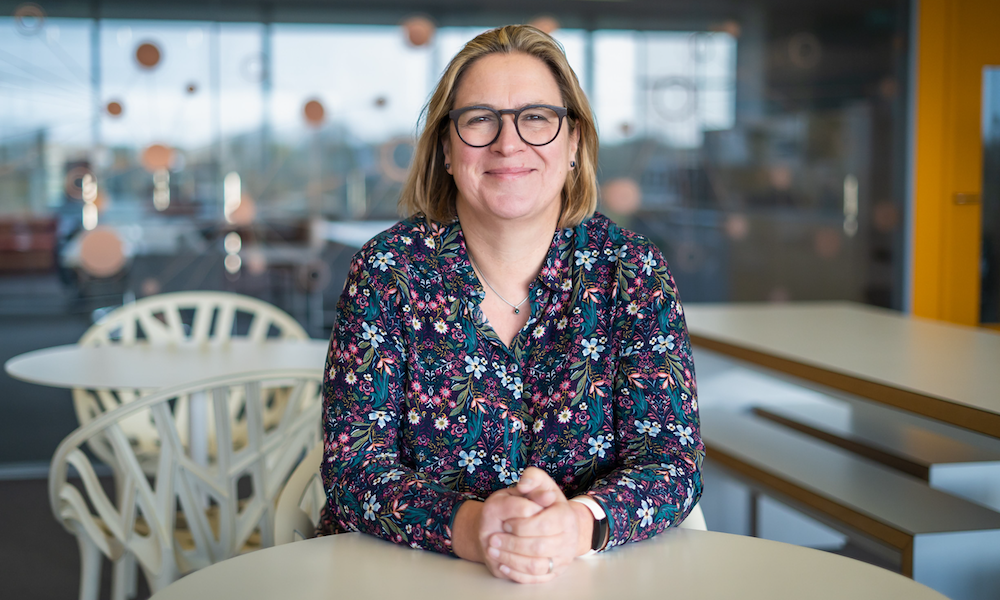Jo McEntyre on Her Work at EBI and Meeting Data Needs Around the World

Anticipating needs and “getting ahead of the curve” are critical priorities in her work helping to providing data resources across the globe, said Jo McEntyre of the European Bioinformatics Institute (EBI).
The institute, described as “the home for big data in biology,” is one of six sites that make up the European Molecular Biology Laboratory (EMBL), an intergovernmental organization. McEntyre became senior scientist and associate director of EMBL-EBI Services in 2019, with a mission focused on delivering data resources in the life sciences that are globally accessible.
She appeared recently as the inaugural speaker in the newly launched Distinguished Lecture Series from the University of Virginia’s School of Data Science where she discussed how EBI manages data resources to accommodate more than 100 million daily online requests.
Part of EBI’s role, she said, involves taking experimental data from researchers and then archiving it, work she described as “quite unusual in the world.”
After archiving data, she explained, EBI then shares it with collaborators and partners worldwide. Their data, she said, runs the “gamut in life sciences,” from DNA to RNA to protein structures.
McEntyre highlighted some of the more significant ways their data has been used in recent years, such as a COVID-19 data portal that was supported by the European Commission. She also addressed the emergence of artificial intelligence and how this could affect the future of EBI’s work.
“We’re very aware of the AI revolution,” she said and, as a result, EBI should look to “new audiences” for their data beyond just biologists who have traditionally been the most frequent users of EBI’s resources.
“I think this is going to broaden as time goes on,” she said of EBI’s primary users, particularly as the focus on data science grows and “as people develop new models and new ways of working with data to make discoveries.”
To meet the growing data needs of a global audience requires more than just reacting to new developments, she explained.
“If you have to be reactive the whole time, it’s not going to work,” she said. “We need to be able to anticipate what the needs are coming down the line.”
Describing herself as a “big open science advocate,” she underscored the importance of collaboration in making her and EBI’s work possible.
“All of this is team science,” she said.